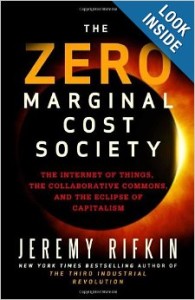
Cynthia Sue Larson
5.0 out of 5 stars 6 Star Mix of Consciousness and Physics – a Life-Changing Book, April 21, 2014
The author asked me to review this book, and I agreed because it comes at a good time in my 61-year long life. I have read it along with Peter Levine's In an Unspoken Voice: How the Body Releases Trauma and Restores Goodness and The Druid of Harley Street: The Spiritual Psychology of E. Graham Howe. Waiting to be read in this series is The Seven Mysteries of Life: An Exploration of Science and Philosophy.
Among them all this is the 6 star special (my top 10% acorss 1,900+ non-fiction reviews), the easiest to grasp, the most meaningful for those seeking to make the leap from being trapped in a world controlled by a malevolent 1%, to a world in which we have a greater effect on ourselves and our community.
My past reading lists, all leading to Amazon, in this general area are easily found by searching for
Worth a Look: Book Reviews on Conscious, Evolutionary, Integral Activism & Goodness
Worth a Look: Book Reviews on Evolutionary Dynamics
What most impressed me about this book was its deep appreciation of real-world physics — it was not until the end of the book that I realized that the author was trained in this discipline and has a very healthy bibliography in that discipline included in the book. This is NOT a “kum-ba-ya” book. Indeed, physics is just now coming to grips with the reality that consciousness matters (pun intended), see the below books
Continue reading “Review: Quantum Jumps – An Extraordinary Science of Happiness and Prosperity”








